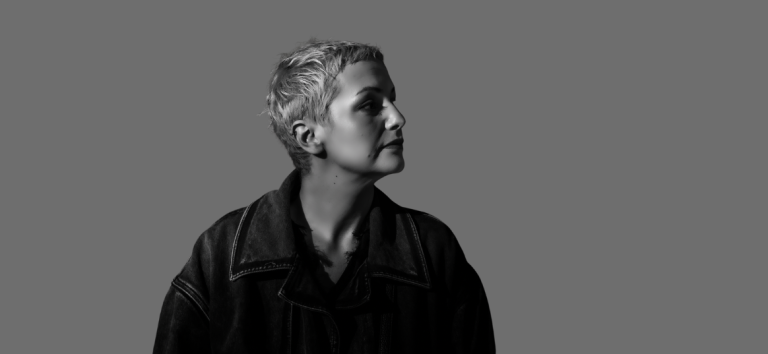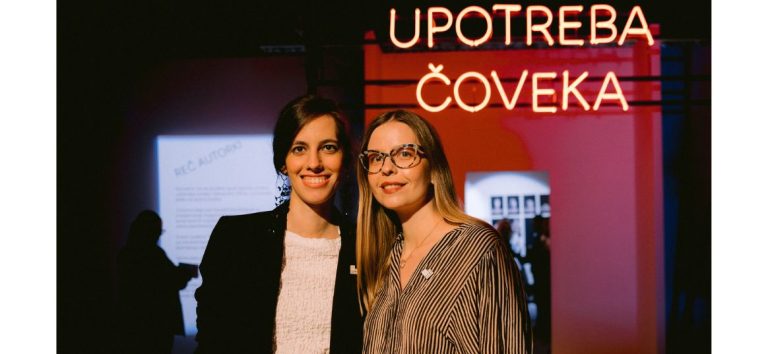The Literary Week of the seventh Kaleidoscope of Culture will bring a rich programme at the Tišma Pavilion, dedicated to one of Novi Sad’s most significant writers, Aleksandar Tišma. On this occasion, the city of Novi Sad will host contemporary regional writer Stevo Grabovac, this year’s recipient of the NIN Award for his novel Poslije Zabave. This celebrated author, known for his novels that deeply explore family issues, trauma, and social injustice, will discuss his work with moderator Jovana Reba at the Biro facility in the District on Saturday, 14 September.
Stevo Grabovac is known for his unique approach to literature, infused with personal experiences and painful themes from the past. Born in 1978 in Slavonski Brod and raised in Bosanski Brod, Grabovac is an author who doesn’t shy away from confronting trauma, whether personal or social. His first novel, The Mulat Albino Komarac, was shortlisted for the NIN Award, and his new novel Poslje Zabave not only earned him this prestigious award but also widespread recognition from readers. In an interview ahead of his appearance at the Kaleidoscope of Culture, Grabovac discusses how he handles the emotional challenges of writing, what responsibility he believes writers have, and how he sees the role of art in reflecting on the past.
Your novel Poslije Zabave which will be discussed during your appearance at the Kaleidoscope of Culture, centers around the duality of father and son, but also addresses broader social injustices and crimes. How did you decide that this topic would be the focus of your second novel, and how did you approach the emotional challenge of writing about crimes? How much did your personal story inspire the shaping of the characters and narratives in your works?
The topic has been haunting me for years, so I knew I would eventually write about it. I might not have experienced it this way had I not carried my own war trauma, but that’s exactly what drove me to understand the magnitude of someone else’s tragedy. We can lament over ourselves, but if our traumas haven’t helped us develop compassion for others, then everything is in vain. I wanted to approach this story personally and didn’t shy away from weaving my own experiences into it. So I can honestly say that there’s a lot of me, lived and emotional, in it—I don’t run from that.
How has receiving such a prestigious literary award impacted you as a writer, and do you feel that the prize carries a certain responsibility in terms of audience expectations and future work?
Honestly, I believe that if you weren’t responsible before receiving the award, you won’t be after it either. But if ‘responsibility’ means that I will now cater to market demands or current trends, that will never happen. It’s impossible to meet every reader’s wishes, and a writer is not a folk singer at a wedding, fulfilling every request that comes to mind.

You are often compared to Danilo Kiš, and your writing style contains elements of autobiographical fiction. How important is it for you to maintain a distance between the real and the imagined, and how do you balance between introspection and universal themes?
Every story contains something personal, if nothing else, the approach itself is personal. To tie into the previous question: let’s say someone pays you well to write, I don’t know, a historical romance novel. That very desire for earnings would be a personal approach. I’ve simplified this, but I want to say that in a way, everything—or at least a lot—in the creative process is personal. The process itself is that way. And as for balancing, there is no right or exact answer. Again, it starts from the personal: how much compassion we have, what we actually want to say, how much we want to say, and so on. I tend to think that only personal themes become universal—i.e., something will only become universal if a large number of people recognize themselves in it, if they find something in it. So, it’s hard to say what is truly universal.
You once mentioned that writing is not a way to overcome trauma, but rather a way to dig into wounds. How do you define the role of art in confronting painful topics as a writer?
Exactly that—digging into wounds. It’s not easy, but life isn’t easy either. And we strive for simplicity—for things to be boxed into some order and peace, for everything to work as it should, although this world is not set up that way. Why should art be any different? Sometimes, when I give answers like this, I sound like I’m over-mystifying and assigning things meanings they don’t have. But it’s actually quite simple. Maybe you’re afraid or ashamed to write about something—like, I don’t know, you had a girlfriend and everything was great, but you didn’t perform well as a lover. So what do we do about that? Well, confront that shame if you want to write about it. Or maybe you killed your neighbor’s dog. How much courage do you have to face that? And so on. You might write something that will stir up the public. Do you dare do that? Someone might even threaten you for what you’ve done. It all starts with the personal—how much you can and how much you dare. And that’s what it means—there’s no mystique or metaphysics. It’s a simple confrontation with your own wounds, with what’s inside you.
When you look at your generation, which grew up during the war and bears the scars of those events, how do you see their maturation? Can literature contribute to a collective process of reconciliation?
I often say that my generation was ’skipped.’ We weren’t old enough to actually fight in the war, and thus, for the majority of us, our hands and consciences remained clean. But after the war, we were no longer young enough to fit into everything either. We lagged behind in everything, everything came to us late. Especially in the pre-internet era—we learned about things later, but we matured too soon. And as for contributing through literature, I really don’t know what impact it could have. What is important is that if a book reaches one person and finds its place in them, if it changes something in them, that is a success. Expecting more than that seems overly ambitious, and believing that my literature can change something would be utterly absurd. An artist is there only to depict things as they are, and as they see them. Has a Picasso painting ever reconciled even two feuding people? I doubt it. And whether a book has ever reconciled warring nations… I don’t believe it.
How do you perceive the writing process—is it therapeutic, introspective, or more of a challenge that requires an analytical approach? Do you have any specific rituals while writing?
First and foremost, I experience writing as strange. It’s a shifted state of mind that, again, doesn’t stop you from functioning normally in society. Besides, I don’t think there’s a clear plan or definite answer. Writing can be all of those things you mentioned, or none of them. I don’t have any rituals. I write whenever conditions allow it, anywhere, anytime—I’m not really a fan of scribbling in cafes, hotels, or city buses, because I believe that real ideas and honest thoughts can’t be forgotten. They’ll stay with you. And, well, I’ve probably mastered the method of retrieving them from my subconscious if they’re really important to me. It’s purely coincidental—I don’t use any technique that helps with that. If rituals are important, I guess I can’t write without a cigarette, so if that counts as a ritual, there it is. But I think it’s just a bad habit.
What are you currently reading, and what books would you recommend to our readers?
Because of a bunch of obligations, I’ve completely neglected reading, and I’m embarrassed to admit it, but I guess such things happen. The good thing is that I’ve started reading again as if I’m trying to catch up with myself, grabbing everything I can get my hands on. I recently read Houellebecq’s latest novel Annihilate—I highly recommend it. At first, it doesn’t seem like something you’d expect from Houellebecq, but it pulls you in and won’t let go. I also reread The Stranger by Camus—it’s definitely a book worth returning to. True Life by Zagajewski is exceptional poetry, maybe the best I’ve read in recent years. Simple yet profound. I’d especially recommend it to those who usually say, ‘I can’t read poetry.’
Kaleidoscope of Culture is a unique event celebrating five types of art—architecture, literature, applied, performing, and visual arts—over five weeks of programming. What do you think about this concept?
I have an extremely high opinion of anything that has the words ‘culture’ or ‘art’ in its title. And great respect, both for the people behind such projects and for the events themselves.
Author: Marina Marić
Photo: Private archive








